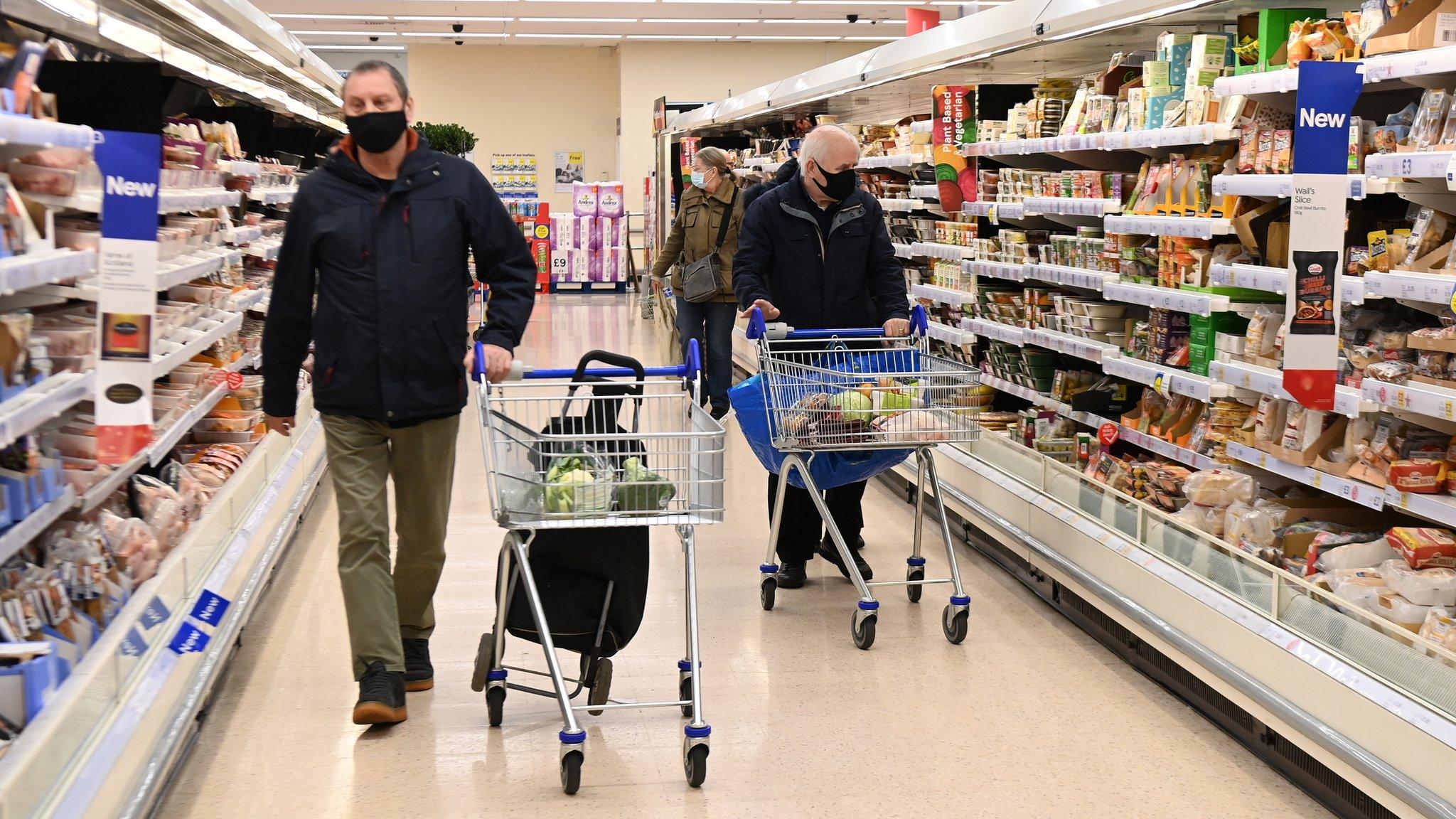'Stop-start' Covid rules cost shops £2bn a week, says industry
- Published
- comments
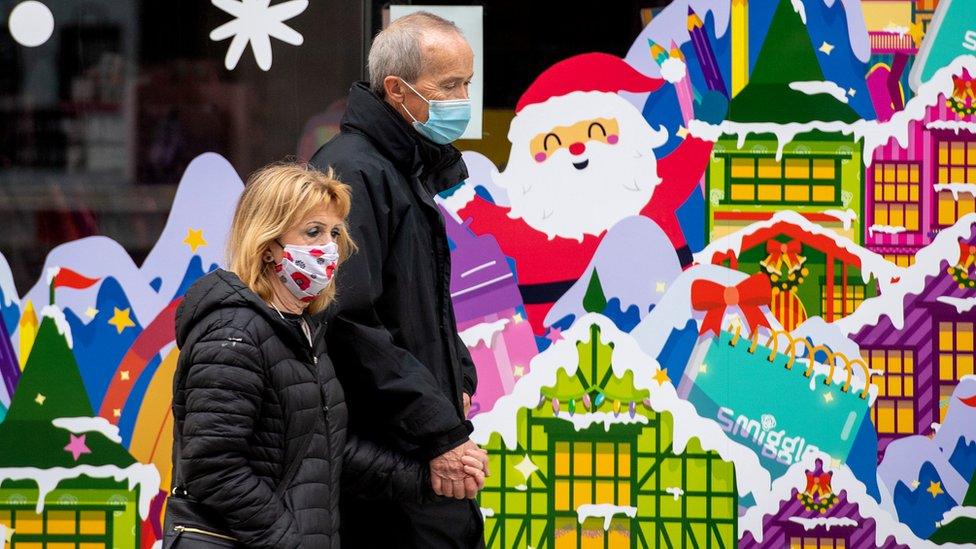
The government's "stop-start" Covid restrictions will cost retailers a further £2bn a week in lost sales, according to an industry group.
The British Retail Consortium (BRC) said it recognised the government had "difficult decisions to make" to stop the spread of Covid-19.
But it said placing large parts of England into tougher tier four restrictions was "hugely regrettable".
"The consequences of this decision will be severe," it added.
Under the tier four rules, all but essential shops in south-east and eastern England, including London, have been forced to shut just as the retail sector gears up for the key Christmas trading period.
Non-essential shops in England had just emerged from closure during a second national lockdown in November when retail sales fell 3.8%, according to the Office for National Statistics.
In Wales, a lockdown means non-essential shops were also forced to shut from Sunday.
All of mainland Scotland will be placed under the tightest restrictions from 26 December, which includes the closure of non-essential shops.
The BRC's chief executive Helen Dickinson said retailers now face losing £2bn per week in sales for the third time this year.
"Many businesses will be in serious difficulty and many thousands of jobs could be at risk," she said.
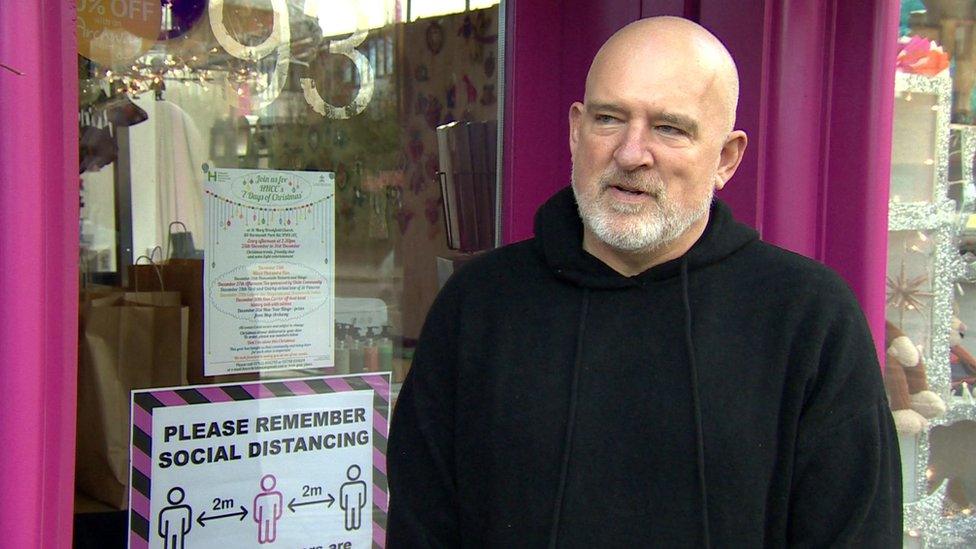
Ian Morris, owner of the Map Gift Shop in North London started a click and collect service after his shop was forced to shut ahead of what should have been his busiest week of the year, and a crucial one, he told the BBC.
"We plan Christmas from January onwards," he said.
"Our Christmas stock will have to go in a sale. There's nothing else we can do with it."

What is an 'essential' retailer?
Supermarkets and food shops
Pharmacies
Garden centres and Christmas tree retailers
Off-licences
Building merchants
Petrol stations and automatic car washes
Vehicle repairs
Bicycle shops
Banks, building societies, post offices
Funeral directors
Vets, pet shops and animal rescue centres
Golf courses
Outdoor archery, driving and shooting ranges

Business group London First said the new measures are "a further hammer blow to Londoners and the capital's businesses after what has been a torrid year".
Its chief executive, Jasmine Whitbread, said: "So many people now find their holiday plans cancelled at the eleventh hour, while the closure of non-essential retail could see many businesses go under."
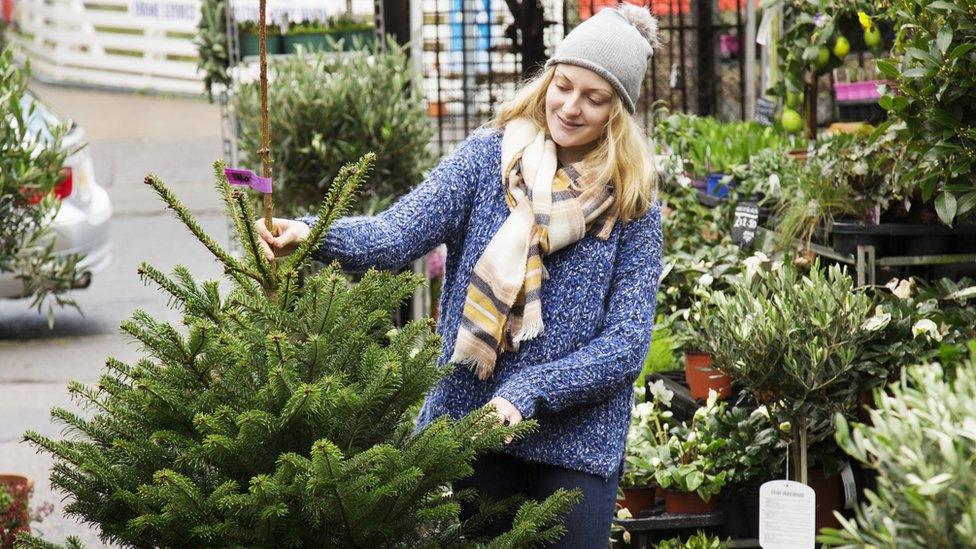
Retailers selling Christmas trees are considered essential
Despite the new rules coming into force so close to Christmas, supermarket group Waitrose said it did not expect any major changes in people's shopping habits.
"We expect that customers will take the rest of the weekend to figure out what this means for their festive plans and it will be next week before we see any impact," it said.
"However, at this late change we are not expecting a profound change in shopping behaviour."
Tesco advised customers not to purchase more than they need to.
"In the run-up to Christmas we want to reassure our customers that we have good availability, so there's no need for customers to buy more than they need," said a spokesman for Tesco.
"We will do our best to make sure our customers can enjoy themselves this year and encourage everyone to continue shopping safely and responsibly."
Sainsbury's said: "We have good availability of food in our stores and encourage customers to shop as normal."

SOCIAL DISTANCING: Can I give my friends a hug?
FACE MASKS: When do I need to wear one?
TESTING: How do I get a virus test?

- Published18 December 2020
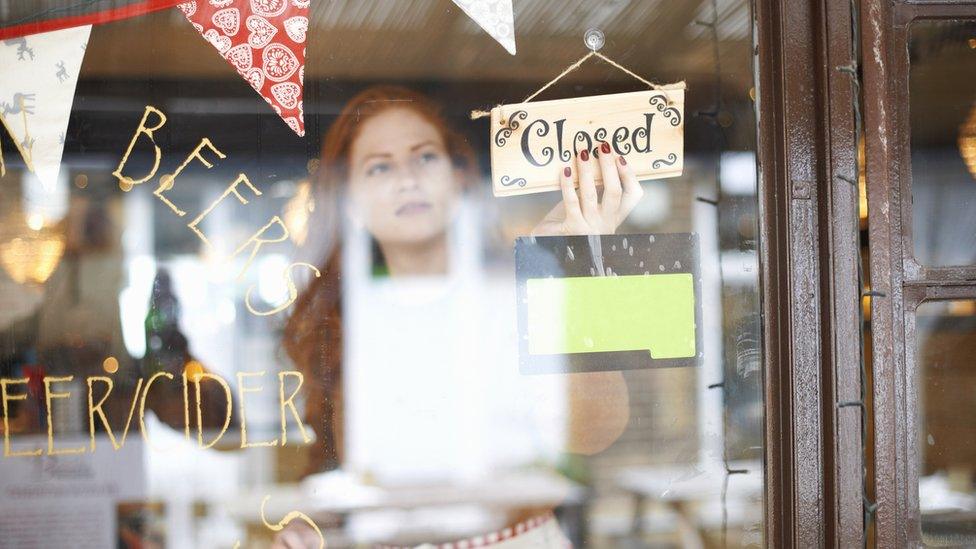
- Published18 December 2020
